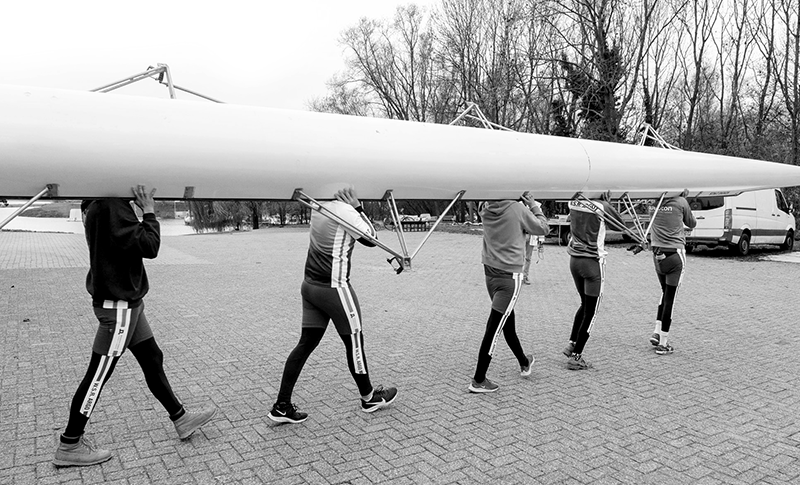Text: Hoger Onderwijs Persbureau, Luuk Zegers
Chair Pieter Duisenberg of the association of Dutch universities VSNU is delighted with the package of measures for student wellbeing and study progress that the government presented (links to Dutch content) on Wednesday, 17 February. ‘This is a major impulse to mitigate delays in research.’
The fact that universities are to receive fast-tracked and structural funds for the recent increase in student numbers is good news, says Duisenberg. ‘The extra teachers, study mentors and support staff we will be able to contract may prevent the already high work pressure from increasing even further.’
He warns, as did Minister Van Engelshoven during the press conference, that this does not solve the structural underfunding of scientific education and research. ‘That is a major task for the next cabinet.’
‘Extra capacity’
The support package is welcomed in Wageningen. Dean of Education Arnold Bregt: ‘I am still studying all the details of the plan, but it appears to be an excellent, coherent plan. Attention has been paid to the students as individuals, their budget, the teachers and research. Moreover, the plan covers education in its entirety: from primary school to university.’
‘The discount on the tuition fee is important for students’, Bregt says. ‘This is a large sum, almost one billion euros. This means students will pay one thousand euros less in tuition fees. Moreover, they will have extra time to complete their studies. This requires extra support from the side of the educators. The plan thus also contains provisions that allow universities to contract more staff. Normally, universities are compensated for increased student numbers after two years. This has now been fast-tracked, making funds available immediately. The plan also provides for extra compensation for teachers and research.’
The package is much larger than I expected, so I am delighted
Arnold Bregt, Dean of Education
The support package allows universities to provide tailored solutions. ‘Organisations have been asked to develop a plan on how they intend to spend the money, in consultation with students and staff. So, we will confer with the teachers and students to decide where the money is needed most.’ Bregt concludes: ‘All in all, I think it’s an excellent package. It is much larger than I expected, so I am delighted.’
Students: a good first step
Dahran Çoban, chair of the Interstedelijk Studenten Overleg (ISO), is also happy with the provision. ‘Fantastic that the cabinet has made such a large financial gesture. The next step is to allow physical education again, then I will feel confident in saying students will get through this crisis.’
Some breathing room for everyone
Lyle Muns, chair National Student Union
‘This support package shows that students’ concerns are taken seriously,’ says Lyle Muns, chair of the National Student Union. ‘By reducing the tuition fees and increasing the duration of student grants, we ensure that students are not faced with the costs of the corona crisis. This provides some breathing room for everyone.’
‘Not a real solution’
Gijs Rotteveel, chair of Student Alliance Wageningen, calls the support package ‘a step in the right direction.’ However, he also criticises the package. ‘We are happy that the government finally responds to the corona crisis with a provision for students. On the other hand, it is not a real solution to the existing problems.’
The measures are insufficient for the impact we already feel, and that is still to come
Gijs Rotteveel, chair Student Alliance Wageningen
‘The minister looks at the average situation and at study results’, Rotteveel says. ‘That view is limited. The corona crisis influences students’ general development. There are fewer opportunities for extracurricular activities, etc. The effects on students are far greater than a simple half-year delay, so we feel the measures are insufficient for the impact we already feel, and that is still to come.’
Rotteveel says some students are left behind in the current provision, for example, students who graduated during the pandemic. ‘All in all, it is a good initial step, but we hope for further steps. This seems like an excellent opportunity to increase structural investments in education.’

 A sum of 8.5 billion euros is earmarked for education. Image: Shutterstock.
A sum of 8.5 billion euros is earmarked for education. Image: Shutterstock. 

